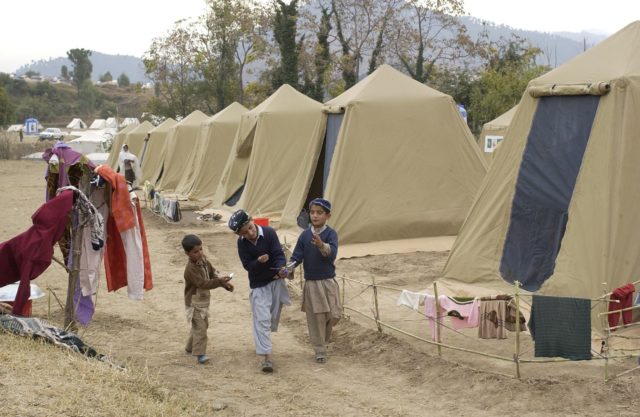


EU-India relations: More than a marriage of convenience?
Author: Jan

Portugal has declared an intensification of the EU’s relations to India as one of the primary foreign policy goal of its current EU Council presidency. Until the 1960s, Portugal occupied parts of the Indian province Goa as a colonial power and, to this day, maintains close relation to India.[1] With Great Britain leaving, the EU has lost a powerful foreign policy actor and needs to revise its future geopolitical strategy.[2] Against this background, an EU-India summit will be held in Mai 2021 in Porto. Portugal’s minister of foreign affairs Augusto Santo Silva praised the imminent summit as the “jewel in the crown” of Portugal’s foreign policy efforts throughout its Council presidency. The summit is supposed to pave the way for a renewed trade and investment agreement between India and the EU. Similar efforts were put to rest in 2013 in view of the EU’s opposition to India’s protectionist tendencies in its agricultural sector as well as the country’s large-scale production of generic pharmaceuticals. [3]
If the EU is to avoid getting caught in the crossfire of the ongoing US-China feud, Brussels is well advised to diversify its economic relations towards India. Reaching out to India is likely to relieve Brussels’ diplomatic tensions with the two superpowers, despite entailing great potential for the EU’s digital progress. India is one of the world’s leading forces in the digital economy and stands out with pioneering innovations in the area of artificial intelligence. [4]Hence, a closer cooperation with India could be a game-changer in the EU’s digital transition and assist the EU in developing digital production capacities of its own. Besides cooperation in the digital field, Indian companies count as global market leaders in the solar power industry, therefore, a partnership could help materialize the EU’s ambitious
new green deal.[1] The European Investment Bank has already invested large sums in promising solar power projects in India with prospects of further investments in the future.[2]
While the EU already is one of India’s largest trading partners, a free trade agreement could result in significant gains of €8 billion, as calculated in a recent study by the European Parliament.[3] In terms of trade relations, India comes close to being a dream partner with a view to its enormous growth potential. As Geert Bourgeois (MEP), focal person on EU-India trade deal in the Parliament, states “it always becomes richer and younger. The growth potential is enormous.”[4] The COVID-19 pandemic has only reinforced both sides’ ambitions to reach a closer economic agreement. While the EU seeks to diversify its supply chains in the attempt to lower its dependence on China, India presents itself as a viable investment alternative. Particularly in the area of manufacturing, India challenges China’s global dominance by attracting contract manufacturers from Europe.
An intensified future cooperation with the EU would not only deepen India’s economic relations with Europe, but also serve as a gateway to other regions of the world. According to political scientist Monica Dias from the University of Lisbon, the signal the EU sends to India should sound as follows: “Look, India: If you deepen your cooperation with the EU, you can use the continent to move further to South America and Africa. These linkages, these bridges are quite important.”[5] However, stronger economic ties are not the only driving force behind the intended rapprochement with India. As the largest democracy in the world, India can be understood as a value partner to the EU. With this in mind, a closer alignment between India and the EU creates the potential of a global counterweight to autocratic China. Portugal’s Minister of Foreign Affairs recently stated, “We cannot overlook the world’s biggest democracy.” [6]Similarly, India’s ambassador to the EU consents to the notion of common values and highlighted that “sharing values of freedom and rule of law lends an element of comfort in our interactions which may not be present with others who adhere to different values.” [7]
Regardless of the enormous potential, Brussels and New-Delhi need to overcome strong mutual reservations before sealing a deal. Brussels disapproves of India’s high tariffs and local content requirement, while New-Delhi is sensitive about any attempts to impose climate and labour standards on its population.[8] Nonetheless, India is on its way to fulfil its Paris Climate Agreement goals and the GDPR inspired similar data protection endeavours in India.[9] Despite some difficulties, it appears that a level playing field to launch negotiations between India and the EU is soon to be in place.
[1] https://www.tagesschau.de/ausland/eu-ratspraesidentschaft-portugal-101.html
[2] https://www.nzz.ch/international/portugal-uebernimmt-ratspraesidentschaft-in-der-eu-ld.1595250
[3] https://www.politico.eu/article/china-rise-eu-india-trade-deal/
[4] https://www.dqindia.com/can-india-next-artificial-intelligence-superpower-heres-industry-leaders-think/
[1] https://www.carbonbrief.org/iea-india-is-on-cusp-of-a-solar-powered-revolution
[2] https://www.eib.org/en/press/all/2018-063-record-eur-1-billion-european-investment-bank-support-for-global-solar-investment-confirmed-ahead-of-international-solar-alliance-summit
[3] https://www.politico.eu/article/china-rise-eu-india-trade-deal/
[4] https://www.politico.eu/article/china-rise-eu-india-trade-deal/
[5] https://www.tagesschau.de/ausland/eu-ratspraesidentschaft-portugal-101.html
[6] https://www.dw.com/de/sozialer-gr%C3%BCner-digitaler-portugals-pl%C3%A4ne-f%C3%BCr-die-eu-ratspr%C3%A4sidentschaft/a-56072474
[7] https://www.politico.eu/article/china-rise-eu-india-trade-deal/
[8] https://www.politico.eu/article/china-rise-eu-india-trade-deal/
[9] https://www.politico.eu/article/china-rise-eu-india-trade-deal/
Your content goes here. Edit or remove this text inline or in the module Content settings. You can also style every aspect of this content in the module Design settings and even apply custom CSS to this text in the module Advanced settings.
Moving by Opportunities – It is all about the Brain
Author: Anna
Where red turnpikes used to appear as obstacles, nowadays you won’t even notice crossing borders within the EU. This freedom of movement is one of the big changes brought to the European Union through the Schengen ratification. But it also presents a major risk to many European member states: the so-called „Brain Drain.“
The 18-year-old Bosnian Aziz Sahbazovic sighs: „People are just going. They don’t care where.“ Ninety percent of his friends have already left their home country. While talking, the boy in the blue shirt is sitting in front of a landscape painting. Currently, he and his sister live in the flat by themselves. Their parents work abroad in order to pay the bills.
Aziz himself is about to leave. In the fall, he hopes to study at a college in Washington, USA. The 18-years old boy identifies the lack of job opportunities as a central motif. „I am really lucky to have been hired for a summer job.“ The boy, who has been chosen as one out of thirty for an international school in Mostar, spends his holidays selling phone cases.
The Brain Drain – Talentabwanderung in German or Beg mozgamov in Slovenian – is a widespread phenomenon in Europe. According to a report from the University of Porto, the term effectively describes the migration of talented young workers out of less developed countries to more developed countries. At first glance, it seems to be generally positive. When Germany calls for qualified workers, why not fill a scarcity with motivated and trained foreigners? Usually, the educated immigrants enhance their lifestyle and job prospects as well. Remembering his own friends who have moved abroad, Aziz has accepted the situation: „I know that they are happy now and live in a better surrounding.“ He still misses them of course.
What Aziz noticed is a sort of a spiral of emigration. „Outside of the tourist season, the streets in my home village are empty at night“, he explains. When young people choose to go, the local budget shrinks and likewise, the living standard. Impeded by corruption, as he says, those teenagers wouldn’t start up their own local ventures, but head instead for Germany, Austria, or Slovenia.
Aziz’s friends are not the only ones. Eastern countries within EU borders lose large numbers of citizens each year as part of labor migration, many of them highly educated. On the other side, the federal government of Germany proudly publishes the number of 28,000 inbound skilled immigrant workers received in 2017.
Economical losses by the Human Capital Flight
Germany will hold the EU council presidency for a 6-month period starting in July 2020, and will be in a position to influence the topical agenda of the EU significantly. Together with co-presidency holder nations Slovenia and Portugal, the three nation will aim to develop a common program by the end of 2020. So far, the controversial Brain Drain topic has been largely left off at the European legislative level.
Franc But, Ambassador of Slovenia in Berlin, does not see the Brain Drain as a problem in his country: „About 60,000 people from Slovenia live in Germany right now.“ Instead he points his finger toward neighbouring states. While young migrants work abroad, society changes back home.
The term „Human capital flight“ further illustrates the situation. This refers to the migration of citizens who have received advanced training. Home countries pay for their citizens‘ kindergarten, primary schooling, and university. In this manner, the loss is financially quantifiable. A study led by Luisa Cerdeira, auxiliary professor at the university of Lisbon, calculates the total public loss as a consequence of one, educated female citizen emigrating from Portugal at 28,723 USD. This number includes missing tax revenue, as well as direct public spending on providing free training. Aziz Sahbazovic recalls one acquaintance graduating from public medical school in Sarajevo, and then applying to work in a German hospital.
Axel Stammberger from the German Ministry of Women, Youth and Gender Equality describes the German position on the subject as difficult. „Of course the German economy also profits from this movement“, he says. Indeed, in this conflict Germany takes the winner’s share. The medical field that has been a recent focus of the media. Alongside a high demand for foreign nurses, the number of immigrant doctors in Germany has risen noticeably within the last decades, according to data presented by the federal german medical association. Other numbers provided by the Friedrich-Ebert-Stiftung recite the same story. From 2000 to 2014, the number of Hungarians working in other EU states has multiplied by nine.
About a process and its long-term impacts
The Brain Drain issue was written into the 2018 agenda of the Bulgarian presidency thusly:
Alongside fostering new, highly-skilled generations of researchers and innovators across the EU, the Bulgarian Presidency will aim to pursue a fruitful discussion on and resolution of the brain-drain phenomenon, in particular in lagging EU Member States and regions, which young, highly-educated people tend to leave so far.
This does not come out from nowhere. As indicated by the United Nations, from 2000 to 2018, the Bulgarian population is estimated to have been reduced by approximately 1 million people.
The demographics have also changed. While the total proportion of 10-14 year olds has remained steady, the elderly population has grown considerably in size. Data from the world bank shows that the number of working-age Bulgarian citizens has declined, which might be read as a sign of the Brain Drain. After their six month tenure, Bulgaria passed the presidency and the topic on to Croatia, another member state faced by a migration exodus.
Whereas the Bulgarian presidency was focused on the topic of Brain Drain, Germany sets the emphasis on increasing the mobility of young people. Axel Stammberger, does not see the origin of the problem within Erasmus+ or other youth encounters. „The EU-programs like Erasmus have so many positive effects on young people“, he elaborates. In his opinion, vocational trainings only have minor effects on the phenomenon. According to the 2018 annual report on labor mobility, 51 percent of the survey participants define employment opportunities as the main factor, and the promise of higher pay being a core motivation. Second place is taken by family reasons, followed by academic pursuits. Inequalities in these areas are not easy to overcome. Franc But summarises the conflict thusly: „We are always trying to improve life in all the areas, but this is a long-term strategy with long-term effects.“
If Aziz could write a policy himself, he would invent one to decrease bureaucracy and fight corruption. „All this paperwork almost makes it impossible for foreigners like the European Union to invest in Bosnia.“ Regarding a possible EU membership for Bosnia, he would assume that the government might receive more funding. „Then again even more might leave“, he comments. Since Bosnia is not yet part of the European Union, Bosnian citizens are only allowed to remain in EU countries for up to 90 days, which equals a tourist visa. In order to receive a residence permit in the EU, employment is required.
Lots of Problems – Few Solutions
Since free movement is basically a human right, it is complex to tackle the task. The Business Club of Slovenia puts forward the idea of improving the housing situation. While housing concerns might not be the central cause for more than 11,000 young people leaving Slovenia between 2014 and 2018, the burdensome situation surely contributes to emigration. Another idea proposed is to build up tax incentives to motivate young Slovenians to return to their home countries.
Education also bears opportunity. Aziz Sahbazovic says he used to hate Bosnia, the country whose poor economic situation forced his father to work abroad multiple times a year, leaving his family frozen in fear. While at the international school in Mostar, however, he discovered a unique potential for Bosnia and learned to love his nation. What has helped him is having an increased understanding of local history in comparison with other states.
In 2018, Bulgaria kicked off a campaign emphasising education in its national budget, and offering specialist vocational trainings. The government has also reduced the number of hurdles for immigrant workers who are members of Bulgarian minorities, thus enforcing Brain Drain to its nearby states. However, none of these measurements have reached a European level yet. „In the end, this economic responsibility in the first place lies in the national government. It lays in the responsibility of the countries“, Dr. Susanne Hegels says.
As an employee of the ministry of energy and economics Dr. Hegels has been involved in preparing the sessions for the trio presidency, one of which is „cohesion“. This term implies further funding for structurally less privileged reasons. Opposed to that is Germany’s call for AI specialists to land here, as written in another paper from 2018 by the ministry she works for. Dr. Susanne Hegels does not find this necessarily problematic. „Especially in the digital field, there might not even be a need to move. Regarding common European projects it is the intention to work together.“
„It is always difficult to find a balance in this topic because the interests of the economy in Germany will always be different than the interest of the economy in Bulgaria“, Axel Stammberger from the youth ministry explains. In the meantime, Aziz has set his eyes sharp on returning to his home country. „I still have hope“, the young man in the blue shirt says. Talking about the place where he grew up, his eyes turn gloomy and he mentions a beautiful river, untouched nature, and perfect conditions for producing wine. When he thinks of Bosnia in fifteen years, he dreams of it using its full potential. Maybe by then, the chemical researcher will have founded his own wine company in the region, and in doing so, giving other young people a reason to stay. Before that, though, he is going to fly over the Pacific, where his chances are best.
Links with further information:
https://www.statista.com/statistics/582146/foreign-doctors-germany/
https://library.fes.de/pdf-files/id/ipa/12032.pdf
https://countrymeters.info/de/Bulgaria
https://www.statista.com/statistics/373486/age-structure-in-bulgaria/
https://www.ft.com/content/51f1bd86-d6cc-11e7-ae3e-563c04c5339a
https://www.bmi.bund.de/EN/topics/migration/immigration/labour-migration/skilled-immigration/skilled-immigration-node.html;jsessionid=DF6357246FB6B7AE498D357C64E5B6E7.1_cid373
http://library.fes.de/pdf-files/bueros/sofia/15336.pdf
Anna Abraham…geht gerne mal die Wände hoch. Aber nur in ihrer Freizeit. Ansonsten ist sie eher ruhiger, liest und schreibt mit Freude oder hört sich die Lebensgeschichten spannender Menschen an.
Disclaimer
The supporting organizations for the production of these articles do not constitute an endorsement of the contents, which reflect the views only of the authors, and the supporting organizations cannot be held responsible for any use which may be made of the information contained therein
Prevention is better than the cure
Author: Nuno Silva
Providing sustainable alternatives for asylum seekers is one of the EU’s main criteria in finding a solution to the so-called migration crisis. Politikorange author Nuno explores whether this is the best approach.
A refugee camp in Shinkiari Pakistan I Picture: Pixabay.com
Almost eighty million people are currently displaced from their homes, according to UNHCR’s latest Global Trends report. This isn’t just motivated by armed conflict. Hunger, persecutions, and numerous violations of the human rights also lead to forced migration, the main beneficiaries of which are groups that explore factions of illegal trafficking. Providing sustainable alternatives to those who search for asylum is one of the EU’s main criteria in finding a solution to the so-called migration crisis. But is this the best approach?
According to the High Commissioner of the UN for Refugees, in 2018 alone, 13 million people were displaced, half of which were, to date, underage. Most refugees came from five countries: Syria, Afghanistan, South Sudan, Myanmar and Somalia. As stated in UNHCR’s 2018 Global Trends report, most of these migrants were granted asylum in Turkey, Pakistan, Uganda, Sudan and Germany. Of these, Turkey is a candidate for the EU and Germany is one of its founding members.
The topic of migration became especially urgent to the European public in April 2015, when more than 700 people drowned in just one week. This motivated the EU to adopt the measures outlined in the European Agenda on Migration: the registration and identification of migrants, the prevention of lives lost at sea, the fight against human trafficking by means of military intervention and the relocation of refugees to EU member states. Regardless of these efforts, people continued to attempt to flee to Europe. According to UNHCR data, in 2018 almost 140,000 people tried to reach Europe by sea.
An obstacle
The national policy of each state has impeded a joint EU response from taking place – in 2017, Germany gave asylum to 186,644 refugees, while Hungary, Poland and the Czech Republic were sanctioned by the European Commission for not giving asylum to anyone. According to a study carried out by the Migration Policy Institute in 2018, even if the EU is in a better position to respond to mass migration, the present situation is fragile, due to the possible non-sustainability of the implemented mechanisms. This shows that the measures introduced to date are insufficient.
The lack of a consensus between EU-countries is obvious. According to Johannes Hahn, European Commissioner for Budget and Administration, individual decisions cannot be taken, requiring a coordinated, collective and coherent response:
Each country’s attempts to close borders will only transform other countries into ‚parking lots‘ for detained migrants.
Hungary’s construction of a barrier in 2015 pushed migrants towards Croatia and Slovenia. The current approach focuses on the application of human rights and providing minimum subsistence to migrants. However, the prevention of the circumstances that force people to flee in the first place would, ultimately, be the correct, long-term approach.
The proposal
„Prevention is better than the cure“ – as stated in this famous phrase delivered by Desiderius Erasmus Roterodamus, the solution for this problem must be to prevent the events that motivate forced migration. This would constitute a complex long-term strategy. Conflicts, hunger, persecution, and violations of human rights are the main boosters of migration. The most basic solutions are also the hardest to implement: diplomacy and education.
Education is recognized as a human right, and the main source of the maintenance, transformation, and evolution of society. Providing education is normally the state’s responsibility. In the absence of state support, certain external entities should invest in the financing of NGOs and in solidarity acts, which would result in a gradual decrease of illiteracy and an increase in instruction. According to Paul Collier and Nicholas Sambanis, authors of „Understanding Civil War: Europe, Central Asia, and other regions“, a secondary enrollment rate 10% higher than average reduces the risk of war by 3%. In 2019 there were still around 750 million illiterates and 260 million people without access to school education. Entities with power should provide education in order to soften the negative indexes and boost the positive ones, until misinformation is no longer the root of problems that motivate migration.
Children at school I Picture: Pexels/Akela Photography
Diplomacy is a natural consequence of education, and one of the primordial dimensions of foreign politics. It is also a core feature in the fight against forced migration. Diplomacy determines the processes through which states establish in-depth contacts, encompassing matters related to conflicts, commerce, cultural promotion, and coordination between organizations. More and better interstate relations, would not only eliminate the most notorious cause of emigration – conflicts – but it would also facilitate the allocation of resources to those in need. Case in point, when, in 1999, several countries joined the United Nations Mission in East Timor, which culminated in the end of the clashes between Timor and Indonesia and the independence of the former.
Compared to education, diplomacy is not easy to apply. The majority of diplomatic relationships are fragile. Differences in agenda and countries’ refusal to grant asylum or compromise stop the cultivation of healthy relations between them. Diplomacy, and the lack thereof, are naturally associated to peace and war, respectively. In 2018, the United States’ withdrawal from the Joint Comprehensive Plan of Action with Iran triggered several military actions on both sides of the conflict.
As part of this preventative approach, there are other, more immediate measures to be taken. Trade in unregulated weapons favors conflicts and persecution, and is a catalyst for human rights violations, as can be seen currently in Syria, Afghanistan, or Yemen. A poor distribution of resources delays progress in combating each of the aforementioned evils. Data from Amnesty International proves that arms trade supplies conflicts and repressions, victimizing civilians around the world. In order to extinguish this commerce, states have to ratify the Treaty about the Commerce of Conventional Weapons, creating or reforming certain laws that reflect the regulations from the agreement.
In resource distribution, bad practice leads to an abrupt increase in inequality. According to Oxfam, in 2018 the 26 most wealthy individuals in the world possessed as many resources as 3.8 thousands of millions of the poorest individuals, essentially from countries in sub-Saharan Africa, North Africa and the Middle East – regions from which the largest number of forced migrants come. This disparity caused a deterioration in the democratic institutions, intensifying, consequently, popular disbelief in the possibility of equality. This has created a vicious cycle, in which citizens neither support, believe, nor recognize the legitimacy of the state. States must guarantee the subsistence of the poorest, prioritizing policies of family support for those most in need and reformulating certain laws and programs to support this fraction of the population. This set of procedures would provoke, gradually, a decrease in inequality.
The application of all these solutions in the current context would reduce forced migration in the future, and alleviate the impact of current migration. Given the gradual character of the preventative proposal, as well as the current state of emergency, the wisest resolution should be correcting the current problems, while simultaneously preventing future setbacks. The necessity to create conditions that ensure the prevention of future migration overshadows the need to alleviate the impact of current migration. Appeals go to those who have the capacity, the good faith, and the benevolence to act – because it’s more important to guarantee that no one leaves their home, than to find a house for someone.
Disclaimer
The supporting organizations for the production of these articles do not constitute an endorsement of the contents, which reflect the views only of the authors, and the supporting organizations cannot be held responsible for any use which may be made of the information contained therein

Nedavni komentarji